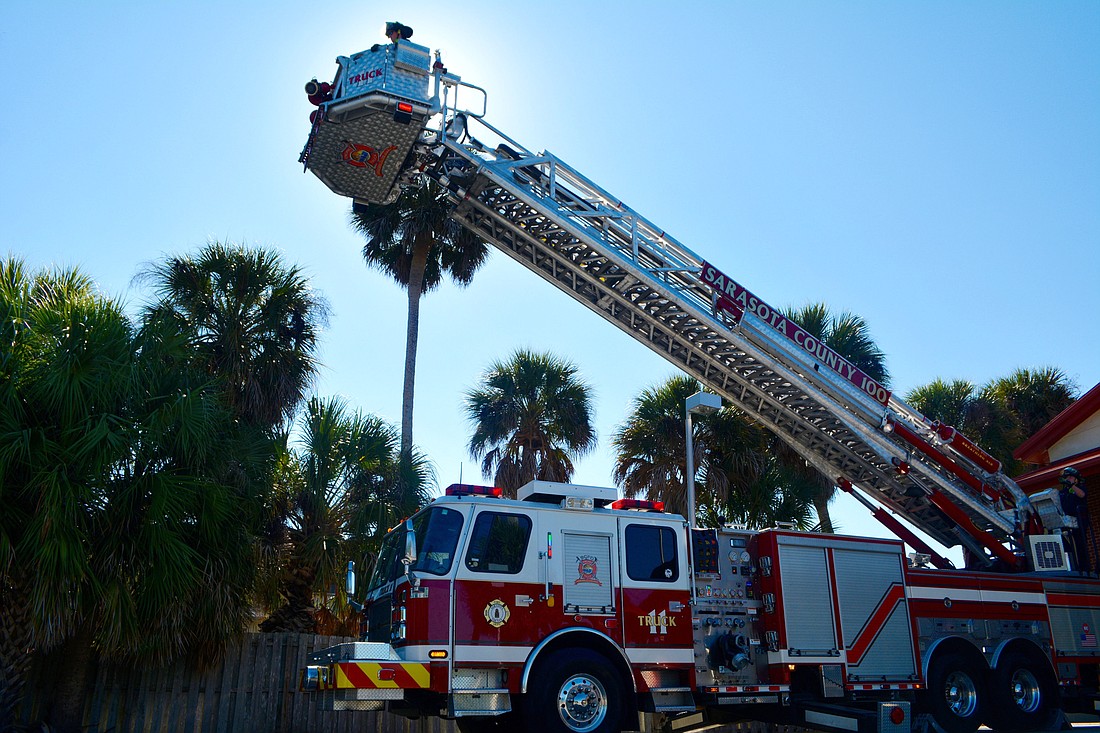- November 23, 2024
-
-
Loading

Loading

As an area becomes increasingly developed, it doesn’t just grow out, but up — even in traditionally residential areas. But as Siesta Key sees a continued influx of tourists and residents alike, concerns over fire safety have also increased.
When Joe Volpe, a director of the Siesta Key Association, began to look into fire codes in the island’s residential multifamily districts, he discovered something he found worrisome: Siesta Key doesn’t have its own ladder truck.
Volpe says he’s specifically concerned about residential buildings that host vacation renters. He says the buildings are not subject to the same level of fire code inspections as traditional hotels.
“These houses just have to meet building codes, but not necessarily fire codes for strict usage. You can have over 26 guests as long as they have common use of the kitchen,” Volpe said. “I’m asking the fire department and the county to figure out what they’re going to do. That’s up to them. I’m just pointing out a problem. We have no way of rescuing people if there’s a lower fire blocking the staircase.”
But, according to Sarasota County Fire Chief Michael Regnier, the lack of a Siesta-specific ladder truck is by design.
“We strategically place our ladder trucks throughout Sarasota County,’’ he said “We have three frontline ladder trucks that we use always, every day, and then we have one reserve unit. They’re spread out so that they have an optimal response plan throughout all of Sarasota County, not just one specific area.”
The types of buildings crews respond to, the types of calls they get and overall call volume are the three major factors that Regnier says determine the location of the county’s ladder trucks. Additionally, they want to make sure their trucks are placed in areas that allow them to be flexible and routinely aid other fire units.
And, should Siesta Key have a structure fire, the ladder truck at Station 11 — just off Stickney Point Road about a mile onto the mainland — would likely respond.
But strategic placement aside, Volpe is worried that, without a ladder truck directly on the island, emergency response units won’t be able to reach areas in distress in a timely manner.
Traffic and congestion, he says, presents a regular challenge.
“The fire people can tell [bridge operators] to not open the bridge, but you still have to get past all the cars,” he challenged. “How are you going to handle all the traffic? … I think the average time to get on the island was 20 minutes, especially in tourist season.”
But Regnier says it’s difficult to estimate response times.
“The [responding] truck may already be on another call and coming, and we have to get another ladder from another area to come out,” he said. “If we look at just this fire station (Station 11) and the response as if they were in quarters, it’s a matter of minutes to get over to the island. And depending on where on the island we’re going, of course, dictates how long it will take to get to the scene ... And there are a number of things we can do to mitigate traffic.”
Fire personnel say it wouldn’t actually make sense to keep a ladder truck on Siesta Key.
“To have a ladder truck for first-out response? It’s too tight out there,” said Dave Bouquin, a firefighter with Station 11.
“The fire engine that responds out there is much more versatile to get into some of the areas that have already been developed and are tight-fitting, as far as access,” Regnier said.
Ultimately, Regnier does not plan to install another ladder truck on Siesta Key. Not only does each ladder truck cost a total of $1.2 million, but the fire department’s response system, he says, works well enough as is.
“Anyone that lives on Siesta Key should be very proud of the service that they have on Siesta Key and surrounding areas,” Regnier said. “Sarasota County takes great pride in responding to the emergency of needs of all county residents, and we do that very well, so we want them to know that and know that we’re there for them.”